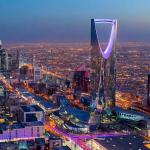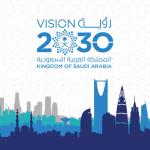Saudi Arabia's Vision 2030 is a transformative initiative aimed at diversifying the country's economy, reducing its dependence on oil, and enhancing the quality of life for its citizens. Launched in 2016, Vision 2030 is reshaping various sectors, and the real estate market is no exception. This ambitious plan is driving significant changes and opening up new opportunities for investors, developers, and residents alike. Here’s how Vision 2030 is transforming Saudi Arabia’s real estate market.
1. Mega-Projects Redefining Urban Landscapes
NEOM
One of the most prominent aspects of Vision 2030 is the development of NEOM, a $500 billion mega-city project located in the northwestern region of Saudi Arabia. NEOM is set to be a high-tech urban area that incorporates smart city technologies, renewable energy sources, and futuristic infrastructure. This mega-project aims to attract global talent and investment, positioning Saudi Arabia as a hub for innovation and technology.
The Red Sea Project
The Red Sea Project is another significant initiative, focusing on luxury tourism and sustainable development. Spanning over 28,000 square kilometers of pristine coastline, islands, and deserts, this project aims to create a world-class tourist destination with luxury resorts, residences, and recreational facilities. The emphasis on sustainability and environmental conservation is expected to attract eco-conscious investors and tourists.
Qiddiya
Qiddiya, located near Riyadh, is envisioned as a premier entertainment, sports, and cultural destination. Covering over 330 square kilometers, Qiddiya will feature theme parks, sports arenas, concert venues, and residential communities. This project aims to boost domestic tourism and provide residents with diverse recreational options, thereby enhancing the quality of life.
2. Regulatory Reforms Boosting Investor Confidence
Vision 2030 includes significant regulatory reforms to create a more transparent and investor-friendly real estate market. The introduction of the Real Estate General Authority and the Saudi Real Estate Refinance Company are steps towards improving market regulation and stability. These reforms aim to protect investors' rights, streamline property transactions, and ensure a robust legal framework.
Additionally, the easing of foreign ownership restrictions and the introduction of long-term residency permits for expatriates are expected to attract international investors. These changes make it easier for foreigners to own property and invest in Saudi Arabia, thereby increasing the market's attractiveness and potential for growth.
3. Focus on Affordable Housing
To address the growing demand for housing, Vision 2030 prioritizes the development of affordable housing projects. The government has launched several initiatives to provide quality, affordable homes for Saudi citizens, including partnerships with private developers and financial institutions. The Sakani program, for example, aims to increase homeownership rates by offering various housing solutions and financial support to citizens.
These efforts are not only improving living standards but also creating opportunities for real estate developers and investors to participate in large-scale residential projects. The focus on affordable housing is expected to drive demand in the real estate market and stimulate economic growth.
4. Technological Advancements in Real Estate
Vision 2030 emphasizes the adoption of advanced technologies in the real estate sector. The integration of smart city concepts, digital infrastructure, and innovative construction techniques is transforming the way properties are developed and managed. Technologies such as artificial intelligence, blockchain, and the Internet of Things (IoT) are being utilized to enhance property management, improve energy efficiency, and provide residents with a connected living experience.
The use of virtual reality (VR) and augmented reality (AR) in property marketing is also becoming more prevalent, allowing potential buyers to take virtual tours of properties from anywhere in the world. These technological advancements are not only improving operational efficiencies but also providing a competitive edge to developers and real estate professionals.
5. Sustainability and Green Building Initiatives
Sustainability is a key pillar of Vision 2030, and the real estate sector is playing a crucial role in achieving the country’s environmental goals. The government is promoting green building practices and the development of eco-friendly properties. Initiatives such as the Saudi Green Building Forum and the adoption of LEED (Leadership in Energy and Environmental Design) standards are encouraging developers to incorporate sustainable design and construction practices.
By focusing on energy efficiency, water conservation, and the use of renewable materials, these initiatives are helping to reduce the environmental impact of new developments. Sustainable real estate projects are not only beneficial for the environment but also attract investors and buyers who prioritize eco-friendly living.
Conclusion
Vision 2030 is a game-changer for Saudi Arabia’s real estate market, driving significant transformations through mega-projects, regulatory reforms, technological advancements, and a focus on sustainability and affordable housing. These changes are creating a dynamic and attractive real estate landscape, offering numerous opportunities for investors, developers, and residents.
As Vision 2030 continues to unfold, the real estate sector is set to play a pivotal role in shaping the future of Saudi Arabia. By staying informed and leveraging the opportunities presented by this ambitious initiative, stakeholders can contribute to and benefit from the ongoing transformation of the Kingdom’s real estate market.
 Top 5 Emerging Neighborhoods in Riyadh for Real Estate Investment in 2024
Top 5 Emerging Neighborhoods in Riyadh for Real Estate Investment in 2024
 How Vision 2030 is Transforming Saudi Arabia's Real Estate Market
How Vision 2030 is Transforming Saudi Arabia's Real Estate Market